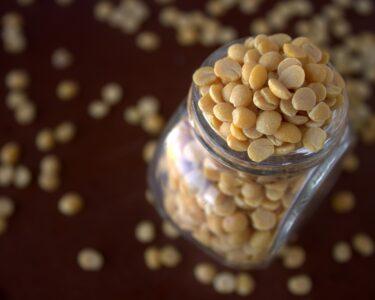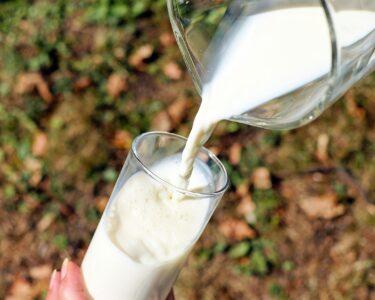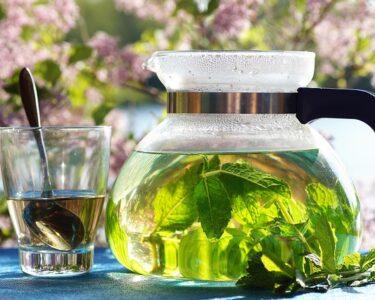Ber is a tropical and subtropical fruit native to the northern hemisphere. There are two major domesticated jujubes, Z. mauritiana Lam. (Indian jujube or ber) and Z. jujuba Mill (Chinese or common jujube). Among two, the former is commonly cultivated throughout the northwest of India and in the arid parts of South India. The area under cultivation with jujube fruit is 8.7 lakh ha with an annual production of 8.9 lakh tones in India. Ber or Indian jujube is an underutilized fruit that has immense nutritional potentials and medicinal value.(1,2)
Indian jujube is a tropical/subtropical fruit native to the northern hemisphere. Indian jujube or ber (Zizyphusmauritiana Lamk) is extensively grown in southern Asia, Syria, northern India, southern central China, and also in southeastern Europe. Ber is indigenous to India and grows under varying conditions of climate all over India even at elevations up to 1000 meters above mean sea level. Despite being a cheap fruit, jujube remains to be an underutilized fruit in the average Indian diet in comparison to costlier yet popular fruits such as mango, apple, and orange. This is mainly because the common consumer has no information about its health-promoting effects.(3)
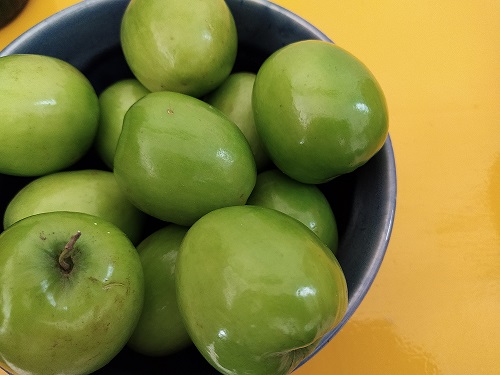
Ber fruit is yellowish to reddish or blackish or green drupe, with white flesh, juicy, sweet, becoming mealy in fully ripe fruit. Fresh ber fruit is generally eaten as it is. The Colour of the fruit is changed from green to yellow to chocolate brown with maturity and ripening. The blend of a sweet and sour taste makes this an appealing fruit. (4)
Ripe ber is abundantly available in Indian markets in only two months (February and March) which is the season for it. It is a moderate-cost, tasteful fruit. (5)
Ber is native to India. It is suitable for cultivation in arid conditions. This fruit is mainly grown in Haryana, Punjab, Uttar Pradesh, Rajasthan, Gujarat, Madhya Pradesh, Bihar, Maharashtra, Andhra Pradesh, and Tamil Nadu. (6)
Names of Ber in different parts of India?
In different parts of India, ber is famous in different names in different languages.
Table-1: Different names of Ber
| Languages | Commonly used names for describing ber (Indian jujube fruit) |
| English | Indian jujubeFrench jujube |
| Hindi | Ber Badara, Beri, Bor, Bordi, Borti, Karkandhu, KuvalaBaer |
| Sanskrit | Badara, KolaKoliKuvala, Sauvira, Sincitikaphala, Ajapriya, Gudaphala, Kantaki, Karkarmadhu, Madhuraphala, Mahadebara, Phalashayshira, PrithukoliSuphala, Vatadalla |
| Urdu | AnnabBaerBerUnab |
| Bengali | KoolTopakool |
| Marathi | Baher, Ber, Bera, Bhor, Bora, Bori |
| Kannada | Elachi, ElanjiJatiKarkandhu |
| Malayalam | Ilantappalam,Elantha, |
| Tamil | arulatotikacceti, arulatotiyam, cuviriyam#, ilandai, irutu, koli, kondai, kularivadari |
| Telegu | badari, ganga regiregu, badaramu, badarika, renga, reygoo |
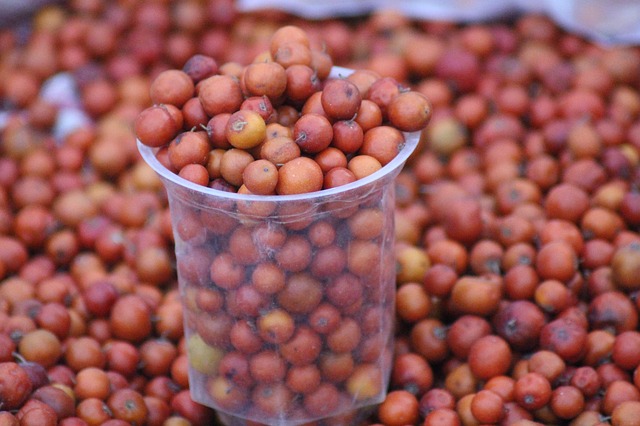
Indian jujube or ber(ZizyphusmauritianaLamk) is a highly nutritious fruit, commonly available in India. The reddish-colored, small, circular fruit is a tasteful, sweet one that is usually consumed as fresh in season (February and March). This fruit is called in different names in different parts of India. But Ber or Indian jujube or baer or bor are the most commonly used names of the fruit.
Table-2:Nutritional composition of 100g of Fresh Indian jujube fruit
| Nutrients | Amount |
| Moisture | 81.6-83.0g |
| Protein | 0.8g |
| Fat | 0.07g |
| Carbohydrates | 17.0g |
| Fiber | 0.60g |
| Total Sugars | 5.4-10.5g |
| Reducing Sugars | 1.4-6.2g |
| Non-Reducing Sugars | 3.2-8.0g |
| Ash | 0.3-0.59g |
| Calcium | 25.6mg |
| Phosphorus | 26.8mg |
| Iron | 0.76-1.8mg |
| Carotene | 0.021mg |
| Thiamine | 0.02-0.024mg |
| Riboflavin | 0.02-0.038mg |
| Niacin | 0.7-0.873mg |
| Citric Acid | 0.2-mg1.1 |
| Ascorbic acid | 65.8-76.0mg |
| Fluoride | 0.1-0.2ppm |
| Pectin | 2.2-3.4% (on dry basis) |
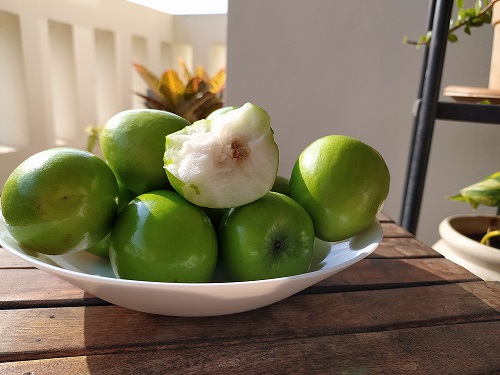
The nutritive value of the ber (Indian jujube) clearly indicated that-
- Ber is a low calorie, low fat, low carbohydrate fruit which can be safely consumed by anyone.
- It is loaded with several vitamins and minerals, along with certain nutrient antioxidants which help us for maintaining good health and preventing diseases.
- The water content of ber is high, making it unsuitable for keeping for a long time without preservation.
- It is rich in fibre and pectin, making it suitable for constipation patients.
- The high pectin content of ber is ideal for preparing jam, jellies or pickles.
But the health potentials of ber is not confined within its nutritional value because it has also several medicinal properties for which it is commonly used in traditional Chinese medicine. (9)
Ber is a low-calorie fruit, rich in micronutrients like vitamins and minerals but it is a poor source of macronutrients like protein, fat, and carbohydrate. It is an excellent source of several antioxidants.
Health benefits of Ber (Indian Jujube) in season make it a super fruit-
Several scientific studies confirmed that excess production of free radicals in our body leads to oxidative stress which in term invites many diseases like obesity, diabetes, cardiac problems, dementia, Alzheimer’s disease, and many more. So, the elimination of free radicals from the body cells is the key to remaining active even at old age. A few studies indicated that ber is an excellent source of natural antioxidants. As the fruit matures, the amount of antioxidants increases. So, in terms of antioxidants, ripe fruits are better than unripe ones. Seasonal intake of fresh ber fruits is effective to prevent many lifestyle diseases.
- Ber fruits has an anticarcinogenic activity. So, it is good for those persons who are at risk of cancer. The people with a family history of cancer or those himself/ herself is a cancer survivor should take fresh ber throughout the season.
- Ber has an antidiabetic property that means regular consumption of ber fruits help to reduce blood glucose level and this is true particularly for those having high blood glucose level. So, it is an ideal fruit for the persons suffering from diabetes.
- Indian jujube has a strong antibacterial property. It is effective to prevent many types of diseases caused by a wide variety of gram-positive and gram-negative bacteria. So, ber is a gut friendly food, regular consumption of ber helps to maintain gut health and prevent common digestive disorders.
- It is also used as blood purifier.
- Ber is a natural appetizer.
- Ber is a hepato-protective fruit. It is good for our liver. (10)
- jujube fruit contains ϒ-aminobutyric acid (GABA). Consumption of jujube fruit supplies sufficient amount of GABA which help to improve the sleep.
- Ber helps to lower the blood pressure.(11)
- Regular consumption of jujube fruits helps to reduce the concentration of heavy metals like lead, cadmium, and arsenic in the human milk.(12)
More or less, we enjoyed ber in season, at least once in a time. But we have several quarries regarding this fruit. I tried to summarize these questions and answer them.
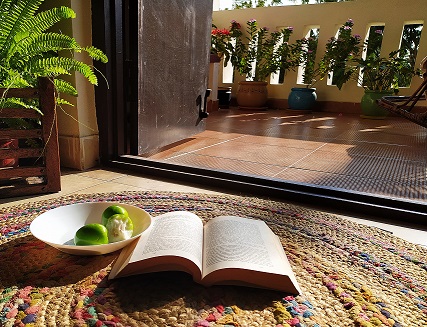
Frequenty Asked Questions on Ber (Indian Jujube)
Is excess consumption of Ber harmful ?
Scientific study confirms that excess intake of ber is not for the body. It will not cause any harm to your liver or kidney. But like any other fruit, too much intake of ber at a time may cause poor digestion. So, it is better for anyone, either child or adult, to take 5/6 ber (Indian jujube fruit) at a time.(13)
Is Ber good for diabetics?
Ber is a low calorie (104 Kcal /100g), low carbohydrate fruit (17g carbohydrate /100g), containing moderate amount of fibre (1.3g /100g). Galactose, fructose and glucose are the major sugars found in ber fruit. So, the carbohydrate profile of ber make it suitable for those with obesity and/ or diabetes.
Ber has an antidiabetic property that means regular consumption of ber fruits helps to reduce blood glucose levels and this is true particularly for those having high blood glucose levels. So, this is healthy fruit can be safely taken by diabetic individuals without any fear.
But since the excess intake of ber lowers blood glucose level, those persons with a tendency of low blood glucose level should not take excess amount of ber. Diabetic persons who need to take insulin on regular basis should also avoid ber intake as it may cause hypoglycemia. (14, 16 )
Is Ber fattening?
Ber contains a negligible amount of fat (as little as 0.07g of fat per 100g of fresh ber fruit). Triglycerides having medium-chain fatty acids are abundant in this fruit. Overall, it is a low energy, low carbohydrate fruit, suitable for obese persons, diabetic individuals and cardiac patients. (15)
Is Ber appropriate for cardiac patients?
Ber is a low-energy, low fat, fiber-rich fruit, rich in several vitamins and minerals. It is an excellent source of several antioxidants. It can be safely taken by cardiac patients or those suffering from high blood pressure (hypertension). It has the following advantages, making it suitable for these patients-
- Ber help to lowers blood pressure.
- It helps correct abnormal lipid profile.
- It is also used as a blood purifier.
- It ensures good sleep.
- It reduces the risk of obesity and diabetes.
What are the vitamins present in Ber?
Ber fruit is a highly nutritious fruit, rich in several vitamins and minerals. It is a rich source of vitamin C and several B-vitamins like thiamine, riboflavin, and niacin. Ber contains an appreciable amount of carotene.
Looking for antioxidants in diet? Take more Ber in season
All of us know that increasing the daily intake of antioxidants is the key for improving our general health, slowing the rate of ageing and preventing many age-related diseases. But, guys what are you doing to increase your daily intake of antioxidants?
Ber is a less utilized seasonal fruit, commonly available in our country having an excellent antioxidant profile. This fruit contains several types of antioxidants like polyphenols, flavonoids, anthocyanins, and pro-anthocyanidins. Scientific studies indicated that dried jujube is beneficial for patients suffering from diabetes, obesity, dyslipidaemia, liver problems, and inflammation. (16, 17)
Ber is a nutritious and health fruit. It is safe to consume for children. It is good for those suffering from obesity, diabetes, high blood pressure or cardiac problems. It is good for your brain, blood and gut.
Ber or Indian jujube (Zizyphusmauritiana Lamk) is a commonly available, seasonal nutritious tasteful fruit. It is a low-calorie fruit, rich in micronutrients like vitamins and minerals but it is a poor source of macronutrients like protein, fat, and carbohydrate. It is an excellent source of several antioxidants. For children, this fruit is safe for consumption. It is good for those suffering from obesity, diabetes, high blood pressure or cardiac problems. It is good for your brain, blood and gut. This fruit is called in different names in different parts of India.

